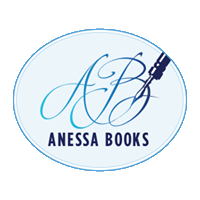 What is it that takes your reader from their comfy chair and places them into the world of your story? What makes a reader lose themselves in a book? It takes a great beginning.
What is it that takes your reader from their comfy chair and places them into the world of your story? What makes a reader lose themselves in a book? It takes a great beginning.
Is that beginning made of action? Is it character? Is it setting? What is it that is going to create that magic? In our fast-paced world of instant gratification, what is going to take a modern-day reader to buy your book, open it up, and stick with it?
I discussed this with my co-host, Pru Warren, on our podcast, The Writers’ Block Party in an episode that will air in a few weeks.
Pru pointed out that authors used to spend lots of time on the first five hundred words of their novel in order to catch the attention of an agent or editor in their quest for a traditional publishing contract.
When I started writing and publishing (way back before self-publishing was a Thing), the first sentence of your book had to be brilliant in order to capture an editor’s attention. Then the first paragraph had to be fantastic to keep that very busy editor reading. The first page had to be superlative to keep them going, and so on until they reached the end of the first twenty-five or fifty pages, depending on how much you were allowed to submit. In a world where editors are sent thousands of submissions every week, they have very little time to be caught by a book to inspire them to send that request for a full manuscript. I imagine this is still true, but now, it’s not just editors and agents who had the attention span of a fly, it’s ordinary readers.
Those readers might very well be opening up to the first few pages of your book on Amazon’s “look inside” feature and reading enough to see if they want to purchase your book. This means that that first sentence, those first few pages, need to be good enough to get someone to part with their hard-earned money. But not only that… if you expect to make a second sale, you need to not only write a fantastic beginning, you need to carry on that excellent writing throughout the rest of your book.
However, it is that beginning that is going to be all-important. Therefore, it is the very beginning of a book and the very end which authors need to concentrate on most – that initial impression, and where you leave readers after they close the book with—hopefully—a sigh of satisfaction. In between that beginning and end, you need to have a compelling story and characters your reader will want to spend time with.
So, how do you do this? How do you begin a book so well that your reader will buy the book and then eagerly open it the first chance they get?
Honestly, it depends on your book and your writing style. Are you amazing at writing characters? Then start with your characters. Enthrall your reader with characters they absolutely must learn more about. Do you excel at description? Draw your reader in with a thrilling description of where your book is set so that they want to spend time there. Is your book filled with excitement and action? Then start with action. Make your first few pages so exciting the reader simply can’t put the book down.
The key here is to do what you are best at. The key is to capture that reader and make them eager for more; to make them unable to put that book down.
Yes, by the end of your first chapter, your reader needs to know something about the protagonist. They need to know what the story question is. And they need to have an idea of what the protagonist’s goal is—what they need to accomplish by the end of the story. But that’s by the end of the chapter. What I’m talking about is that first sentence, that first page. If your reader doesn’t stick around to the end of that chapter, they’ll never learn about all the excitement that you’ve got in store for them.
So, work on the first sentence. Work on that first paragraph. Wrap that reader around your little finger and keep them so enthralled by your writing that they absolutely must go on.
And just for fun, I did recently see a meme that says that if you include the words “And then the murders began” as your second sentence you can never go wrong:
“I wonder what Piglet is doing,” thought Pooh. And then the murders began. (Winnie the Pooh, A. A. Milne)
Mr. and Mrs. Dursley of Number 4 Privet Drive, were very proud to say they were perfectly normal, thank you very much. And then the murders began. (Harry Potter and the Sorcerer’s Stone, J. K. Rowling)
In the beginning, God created the Heaven and the Earth. And then the murders began. (The Bible)
When Mr. Bilbo Baggins of Bag End announced that he would shortly be celebrating his eleventy-first birthday with a party of special magnificence, there was much talk and excitement in Hobbiton. And then the murders began. (The Lord of the Rings, J. R. R. Tolkein)
I am the chairman and president of The Trump Organization. And then the murders began. (How to Get Rich, D. Trump)
